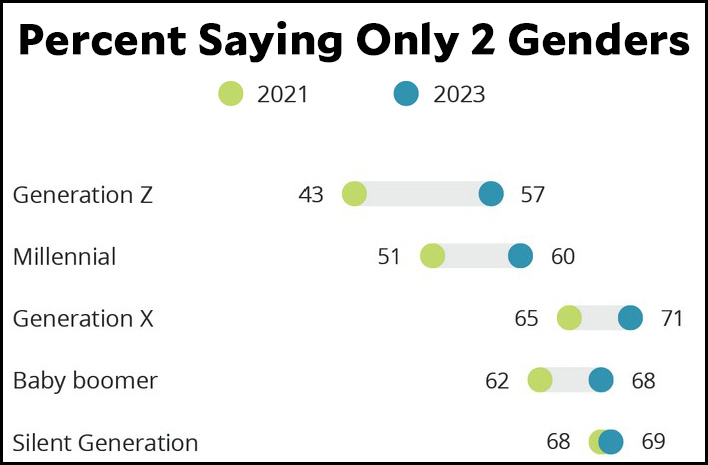Are we in the middle of a great moral decline? It's a common belief. But it turns out it's always been a common belief.
Every year for the past 70 years, anyway. A new study tests the belief in moral decline by examining survey items conducted since 1949:
Typical items included: “Do you think that over the last few decades our society has become less honest and ethical in its behavior, more honest and ethical, or has there been no change in the extent to which people behave honestly and ethically?” and “Right now, do you think the state of moral values in this country as a whole is getting better or getting worse?”
The researchers found that respondents typically agreed with an astonishing 84% of items like this. They believed in moral decline in 1949; they believed in moral decline in 2019; and they believed in moral decline every year in between. What's more, they consistently believed moral decline happened at very specific times, as shown in this somewhat odd looking chart:
 People generally believe that morality was high and stable until the year they were born. Then it declines. Morality is perceived as declining a bit in the first 20 years of their life and then declining considerably up to the present day.
People generally believe that morality was high and stable until the year they were born. Then it declines. Morality is perceived as declining a bit in the first 20 years of their life and then declining considerably up to the present day.
But is morality declining? The authors investigated this by looking at survey questions that ask about current morality:
For decades, survey researchers have also been asking people to report directly on the moral values, traits and behaviours of themselves and their contemporaries in the present: “Were you treated with respect all day yesterday?” or “Would you say that most of the time people try to be helpful, or that they are mostly just looking out for themselves?”...If, as people all over the world claim, morality has been declining steadily and precipitously for decades, then people’s reports of current morality should also have declined over the years. Have they?
Unsurprisingly, the answer is clear: reports of current morality were stable over time. The authors looked at surveys from 1965 through 2020 and found no differences. Furthermore, they found that among personal friends and acquaintances, people reported slightly higher morality over time.
In short, most people believe that morality has declined over time but this is almost certainly not true. So why do they believe it? The authors offer an involved psychological theory, but I'd guess the answer is fairly simple. The belief in moral decline is strongest among conservatives and the elderly, and both groups simply disapprove of lots of modern changes. It's perfectly consistent, for example, to believe that individuals are as decent as ever but also to believe that gay marriage represents moral decay. The same is true for choices of clothing, women working outside the home, reduced churchgoing, and other trends that conservatives and the elderly tend to disapprove of.
In any case, the overall conclusion is clear: "the perception of moral decline is pervasive, perdurable, unfounded and easily produced." If anything, kindness, honesty, and basic human decency have likely increased in recent years. People just prefer not to believe it.






